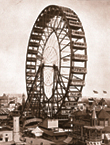Civilization studies provide an in-depth examination of the development and accomplishments of one of the world's great civilizations through direct encounters with significant and exemplary documents and monuments. These sequences complement the literary and philosophical study of texts central to the humanities sequences, as well as the study of synchronous social theories that shape basic questions in the social science sequences. Their approach stresses the grounding of events and ideas in historical context and the interplay of events, institutions, ideas, and cultural expressions in social change. The courses emphasize texts rather than surveys as a way of getting at the ideas, cultural patterns, and social pressures that frame the understanding of events and institutions within a civilization. And they seek to explore a civilization as an integrated entity, capable of developing and evolving meanings that inform the lives of its citizens.
Unless otherwise specified, courses should be taken in sequence. Note the prerequisites, if any, included in the course description of each sequence. Some civilization sequences are two-quarter sequences; others are three-quarter sequences. Students may meet a two-quarter civilization requirement with two courses from a three-quarter sequence.
Because civilization studies sequences offer an integrated, coherent approach to the study of a civilization, students cannot change sequences. Students can neither combine courses from a civilization sequence with a freestanding course nor combine various freestanding courses to create a civilization studies sequence. Students who wish to use such combinations are seldom granted approval to their petitions, including petitions from students with curricular and scheduling conflicts who have postponed meeting the civilization studies requirement until their third or fourth year in the College.
Courses
CRES 24001-24002-24003. Colonizations I-II-III.
This sequence meets the general education requirement in civilization studies. This three-quarter sequence approaches the concept of civilization from an emphasis on cross-cultural/societal connection and exchange. We explore the dynamics of conquest, slavery, colonialism, and their reciprocal relationships with concepts such as resistance, freedom, and independence, with an eye toward understanding their interlocking role in the making of the modern world.
CRES 24001. Colonizations I. 100 Units.
Themes of slavery, colonization, and the making of the Atlantic world are covered in the first quarter.
Terms Offered: Autumn
Prerequisite(s): These courses can be taken in any sequence.
Note(s): This sequence meets the general education requirement in civilization studies. This course is offered every year.
Equivalent Course(s): ANTH 24001,HIST 18301,SOSC 24001
CRES 24002. Colonizations II. 100 Units.
Modern European and Japanese colonialism in Asia and the Pacific is the theme of the second quarter.
Terms Offered: Winter
Prerequisite(s): These courses can be taken in any sequence.
Equivalent Course(s): ANTH 24002,HIST 18302,SOSC 24002
CRES 24003. Colonizations III. 100 Units.
The third quarter considers the processes and consequences of decolonization both in the newly independent nations and the former colonial powers.
Terms Offered: Spring
Prerequisite(s): These courses can be taken in any sequence.
Equivalent Course(s): ANTH 24003,HIST 18303,SALC 20702,SOSC 24003
EALC 10800-10900-11000-15400. Introduction to the Civilizations of East Asia I-II-III-IV.
Taking these courses in sequence is not required. This sequence meets the general education requirement in civilization studies. This is a three-quarter sequence on the civilizations of China, Japan, and Korea, with emphasis on major transformation in these cultures and societies from the Middle Ages to the present.
EALC 10800. Introduction to the Civilizations of East Asia I. 100 Units.
Instructor(s): G. Alitto Terms Offered: Autumn
Equivalent Course(s): HIST 15100,CRES 10800,SOSC 23500
EALC 10900. Introduction to the Civilizations of East Asia II. 100 Units.
Terms Offered: Winter
Equivalent Course(s): CRES 10900,HIST 15200,SOSC 23600
EALC 11000. Introduction to the Civilizations of East Asia III. 100 Units.
Terms Offered: Not offered 2012/2013
Equivalent Course(s): CRES 11000,HIST 15300,SOSC 23700
EALC 15400. Introduction to the Civilizations of East Asia IV. 100 Units.
Instructor(s): M. Bradley Terms Offered: Spring
Equivalent Course(s): HIST 15400,SOSC 23801
HIPS 17300-17400-17501-17502. Science, Culture, and Society in Western Civilization I-II-III-IV.
Taking these courses in sequence is recommended but not required. This sequence meets the general education requirement in civilization studies. This three-quarter sequence focuses on the origins and development of science in the West. Our aim is to trace the evolution of the biological, psychological, natural, and mathematical sciences as they emerge from the cultural and social matrix of their periods and, in turn, affect culture and society.
HIPS 17300. Science, Culture, and Society in Western Civilization I. 100 Units.
The first quarter examines the sources of Greek science in the diverse modes of ancient thought and its advance through the first centuries of our era. We look at the technical refinement of science, its connections to political and philosophical movements of fifth- and fourth-century Athens, and its growth in Alexandria.
Instructor(s): R. Richards Terms Offered: Autumn
Equivalent Course(s): HIST 17300
HIPS 17400. Science, Culture, and Society in Western Civilization II. 100 Units.
The second quarter is concerned with the period of the scientific revolution: the sixteenth to eighteenth centuries. The principal subjects are the work of Copernicus, Kepler, Galileo, Vesalius, Harvey, Descartes, and Newton.
Instructor(s): A. Johns Terms Offered: Winter. Not offered in 2012-13.
Equivalent Course(s): HIST 17400
HIPS 17501. Science, Culture, and Society in Western Civilization III: Medicine since the Renaissance. 100 Units.
This course is an examination of various themes in the history of medicine in Western Europe and America since the Renaissance. Topics include key developments of medical theory (e.g., the circulation of the blood and germ theory), relations between doctors and patients, rivalries between different kinds of healers and therapists, and the development of the hospital and laboratory medicine.
Instructor(s): A. Winter Terms Offered: Spring.
Equivalent Course(s): HIST 17501
HIPS 17502. Science, Culture, and Society in Western Civilization IV: Modern Science. 100 Units.
The advances science has produced have transformed life beyond anything that a person living in 1833 (when the term "scientist" was first coined) could have anticipated. Yet science continues to pose questions that are challenging and, in some instances, troubling. How will our technologies affect the environment? Should we prevent the cloning of humans? Can we devise a politically acceptable framework for the patenting of life? Such questions make it vitally important that we try to understand what science is and how it works, even if we never enter labs. This course uses evidence from controversies (e.g., Human Genome Project, International Space Station) to throw light on the enterprise of science itself.
Instructor(s): J. Evans Terms Offered: Spring.
Equivalent Course(s): HIST 17502
HIST 10101-10102. Introduction to African Civilization I-II.
Completion of the general education requirement in social sciences recommended. Taking these courses in sequence is recommended but not required. This sequence meets the general education requirement in civilization studies. African Civilization introduces students to African history and cultures in a two-quarter sequence.
HIST 10101. Introduction to African Civilization I. 100 Units.
Part One considers literary, oral, and archeological sources to investigate African societies and states from the early iron age through the emergence of the Atlantic World: case studies include the empires of Ghana and Mali, and Great Zimbabwe. The course also treats the diffusion of Islam, the origins and effects of European contact, and the trans-Atlantic slave trade.
Instructor(s): E. Osborn Terms Offered: Autumn
Equivalent Course(s): AFAM 20701,ANTH 20701,CRES 20701
HIST 10102. Introduction to African Civilization II. 100 Units.
Part Two takes a more anthropological focus, concentrating on Eastern and Southern Africa, including Madagascar. We explore various aspects of colonial and postcolonial society. Topics covered include the institution of colonial rule, ethnicity and interethnic violence, ritual and the body, love, marriage, money, youth and popular culture.
Instructor(s): J. Cole Terms Offered: Winter
Equivalent Course(s): AFAM 20702,ANTH 20702,CHDV 21401,CRES 20702
HIST 13001-13002-13003. History of European Civilization I-II-III.
Students who plan to complete a three-quarter sequence will register for HIST 13003 in Spring Quarter after completing HIST 13001-13002. Students may not combine HIST 13003 with one other quarter of European Civilization to construct a two-quarter sequence. This sequence meets the general education requirement in civilization studies. "European Civilization" is a two-quarter sequence designed to use close readings of primary sources to enrich our understanding of Europeans of the past. As we examine the variety of their experiences, we will often call into question what we mean in the first place by "Europe" and "Civilization." Rather than providing a narrative of high politics, the sequence will emphasize the contested geographic, religious, social and racial boundaries that have defined and redefined Europe and its people over the centuries. We will read and discuss sources covering the period from the early middle ages to the present, from a variety of genres: saga, biography, personal letters, property records, political treatises, memoirs and government documents, to name only a few. Individual instructors may chose different sources and highlight different aspects of European Civilization, but some of the most important readings will be the same in all sections. The two-quarter sequence may also be supplemented by a third quarter, in which students will have the opportunity to explore in greater depth a particular topic in the history of European civilization.
HIST 13001. History of European Civilization I. 100 Units.
Terms Offered: Autumn, Winter
HIST 13002. History of European Civilization II. 100 Units.
Terms Offered: Winter, Spring
HIST 13003. History of European Civilization III. 100 Units.
Terms Offered: Spring
HIST 13100-13200-13300. History of Western Civilization I-II-III.
Available as a three-quarter sequence (Autumn, Winter, Spring) or as a two-quarter sequence (Autumn, Winter; or Winter, Spring). This sequence meets the general education requirement in civilization studies. The purpose of this sequence is threefold: (1) to introduce students to the principles of historical thought, (2) to acquaint them with some of the more important epochs in the development of Western civilization since the sixth century BC, and (3) to assist them in discovering connections between the various epochs. The purpose of the course is not to present a general survey of Western history. Instruction consists of intensive investigation of a selection of original documents bearing on a number of separate topics, usually two or three a quarter, occasionally supplemented by the work of a modern historian. The treatment of the selected topics varies from section to section. This sequence is currently offered twice a year. The amount of material covered is the same whether the student enrolls in the Autumn-Winter-Spring sequence or the other sequence.
HIST 13100. History of Western Civilization I. 100 Units.
Instructor(s): K. Weintraub, Autumn, Winter; J. Boyer, Summer Terms Offered: Autumn, Winter, Summer
Prerequisite(s): These courses must be taken in sequence
HIST 13200. History of Western Civilization II. 100 Units.
Instructor(s): K. Weintraub, Winter, Spring; J. Boyer, Summer Terms Offered: Winter, Spring, Summer
Prerequisite(s): These courses must be taken in sequence
HIST 13300. History of Western Civilization III. 100 Units.
Instructor(s): K. Weintraub, Spring; J. Boyer, Summer Terms Offered: Spring, Summer
Prerequisite(s): These courses must be taken in sequence
HIST 13500-13600-13700. America in World Civilization I-II-III.
Available as a three-quarter sequence (Autumn, Winter, Spring) or as a two-quarter sequence (Autumn, Winter; or Winter, Spring). This sequence meets the general education requirement in civilization studies. This sequence uses the American historical experience, set within the context of Western civilization, to (1) introduce students to the principles of historical thought, (2) probe the ways political and social theory emerge within specific historical contexts, and (3) explore some of the major issues and trends in American historical development. This sequence is not a general survey of American history.
HIST 13500. America in World Civilization I. 100 Units.
Subunits examine the basic order of early colonial society; the social, political, and intellectual forces for a rethinking of that order; and the experiences of the Revolution and of making a new polity.
Terms Offered: Autumn
Prerequisite(s): These courses must be taken in sequence
HIST 13600. America in World Civilization II. 100 Units.
Subunits focus on the impact of economic individualism on the discourse on democracy and community; on pressures to expand the definition of nationhood to include racial minorities, immigrants, and women; on the crisis over slavery and sectionalism; and on class tensions and the polity.
Terms Offered: Winter
Prerequisite(s): These courses must be taken in sequence
HIST 13700. America in World Civilization III. 100 Units.
Subunits focus on the definitions of Americanism and social order in a multicultural society; Taylorism and social engineering; culture in the shadow of war; the politics of race, ethnicity, and gender; and the rise of new social movements.
Terms Offered: Spring
Prerequisite(s): These courses must be taken in sequence
HIST 13900-14000. Introduction to Russian Civilization I-II.
This two-quarter sequence provides an interdisciplinary introduction to Russian civilization. The first quarter covers the ninth century to the 1880s; the second quarter continues on through the post-Soviet period. Working closely with a variety of primary sources—from oral legends to film and music, from political treatises to literary masterpieces—we will track the evolution of Russian civilization over the centuries and through radically different political regimes. Topics to be discussed include: the influence of Byzantine, Mongol-Tataric, and Western culture in Russian civilization; forces of change and continuity in political, intellectual and cultural life; the relationship between center and periphery; systems of social and political legitimization; and symbols and practices of collective identity. This sequence meets the general education requirement in civilization studies. Taking these courses in sequence is recommended but not required. This sequence is offered in alternate years.
HIST 13900. Introduction to Russian Civilization I. 100 Units.
Instructor(s): F. Hillis Terms Offered: Autumn. Not offered in 2012-13.
Equivalent Course(s): RUSS 25100,SOSC 24000
HIST 14000. Introduction to Russian Civilization II. 100 Units.
Instructor(s): F. Hillis Terms Offered: Winter. Not offered 2012-13.
Equivalent Course(s): RUSS 25200,SOSC 24100
HIST 16700-16800-16900. Ancient Mediterranean World I-II-III.
Available as a three-quarter sequence (Autumn, Winter, Spring) or as a two-quarter sequence (Autumn, Winter; or Winter, Spring). This sequence meets the general education requirement in civilization studies. This sequence surveys the social, economic, and political history of Greece to the death of Alexander the Great (323 BC), Autumn Quarter; the Roman Republic (509 to 27 BC), Winter Quarter; and the five centuries between the establishment of imperial autocracy in 27 BC and the fall of the Western empire in the fifth century AD, Spring Quarter.
HIST 16700. Ancient Mediterranean World I. 100 Units.
This course surveys the social, economic, and political history of Greece from prehistory to the Hellenistic period. The main topics considered include the development of the institutions of the Greek city-state, the Persian Wars and the rivalry of Athens and Sparta, the social and economic consequences of the Peloponnesian War, and the eclipse and defeat of the city-states by the Macedonians.
Terms Offered: Autumn
Equivalent Course(s): CLCV 20700
HIST 16800. Ancient Mediterranean World II. 100 Units.
This course surveys the social, economic, and political history of Rome, from its prehistoric beginnings in the twelfth century BCE to the political crisis following the death of Nero in 68 CE. Throughout, the focus is upon the dynamism and adaptability of Roman society, as it moved from a monarchy to a republic to an empire, and the implications of these political changes for structures of competition and cooperation within the community.
Terms Offered: Winter
Equivalent Course(s): CLCV 20800
HIST 16900. Ancient Mediterranean World III. 100 Units.
This quarter surveys the five centuries between the establishment of imperial autocracy in 27 BC and the fall of the Western empire in the fifth century AD.
Terms Offered: Spring
Equivalent Course(s): CLCV 20900
JWSC 20001-20002-20003. Jewish History and Society I-II-III.
Taking these courses in sequence is not required. This sequence meets the general education requirement in civilization studies. Students explore the ancient, medieval, and modern phases of Jewish culture(s) by means of documents and artifacts that illuminate the rhythms of daily life in changing economic, social, and political contexts. Texts in English.
JWSC 20001. Jewish History and Society I. 100 Units.
This section of the course concentrates on the ancient era of Jewish History and Society, beginning with the emergence of the kingdom of Israel in the tenth century B.C.E.
Instructor(s): Staff Terms Offered: Autumn
Equivalent Course(s): CRES 20001,NEHC 20401,NEHC 30401
JWSC 20002. Jewish History and Society II. 100 Units.
This section of the course concentrates on the medieval period of Jewish History and Society.
Instructor(s): Staff Terms Offered: Winter
Equivalent Course(s): CRES 20002,NEHC 20402,NEHC 30402
JWSC 20003. Jewish History and Society III. 100 Units.
Topic: Jews in Muslim Lands. The history of Jews in Muslim lands was typically told as either as a model of a harmonious of coexistence, or, conversely, as a tale of perpetual persecution. Our class will try to read beyond these modes of analysis, by looking into particular contexts and the unique historical circumstances of a variety of Jewish communities whose members lived under Muslim rule. The class will explore the ways in which Jewish culture—namely, theology, grammar, philosophy, and literature—thrived, and was transformed, in the medieval and early modern periods, as a result of its fruitful interactions with Muslim and Arab cultures. Likewise we will study how liberal and communist Jews struggled to attain equal rights in their communities, and their understanding of various concepts of citizenship. Finally, the class will study the problems faced by Jews from Muslim lands as they immigrated to Israel in the 1950s. The class will discuss such concepts as “Sephardim,” “Mizrahim,” and “Arab-Jews,” as well as “Dhimmis” and “People of the Book” and investigate how their meaning changed in various historical contexts.
Instructor(s): O. Bashkin Terms Offered: Spring
Equivalent Course(s): CRES 20003,NEHC 20403,NEHC 30403
JWSC 20004-20005-20006. Jewish Thought and Literature I-II-III.
Taking these courses in sequence is not required. This sequence meets the general education requirement in civilization studies. Students in this sequence explore Jewish thought and literature from ancient times until the modern era through a close reading of original sources. A wide variety of works is discussed, including the Hebrew Bible (Old Testament) and texts representative of rabbinic Judaism, medieval Jewish philosophy, and modern Jewish culture in its diverse manifestations. Texts in English.
JWSC 20004. Jewish Thought and Literature I: Introduction to the Hebrew Bible. 100 Units.
The course will survey all twenty-four books of the Hebrew Bible, clarify its precise relationship to the Old Testament, and introduce critical questions regarding its central and marginal figures and ideas, its literary qualities and anomalies, the history of its composition and transmission, its relation to other artifacts from the biblical period, its place in the history and society of ancient Israel, Judah and Judea, its relation to the larger culture of the ancient Near East, and the rise of canonicity and hermeneutics. Student responsibilities include primary and secondary readings, attending lectures, full participation in discussion sections, a guided visit to the Oriental Institute museum, a final exam on the lectures, and a final paper synthesizing the discussion sections.
Instructor(s): S. Chavel Terms Offered: Autumn
Equivalent Course(s): BIBL 30800,NEHC 20404,NEHC 30404,RLST 11004
JWSC 20005. Jewish Thought and Literature II: Narratives of Assimilation. 100 Units.
Topic: Narratives of Assimilation. This course offers a survey into the manifold strategies of representing the Jewish community in East Central Europe beginning from the nineteenth century to the Holocaust. Engaging the concept of liminality—of a society at the threshold of radical transformation—it will analyze Jewry facing uncertainties and challenges of the modern era and its radical changes. Students will be acquainted with problems of cultural and linguistic isolation, hybrid identity, assimilation, and cultural transmission through a wide array of genres—novel, short story, epic poem, memoir, painting, illustration, film. The course draws on both Jewish and Polish-Jewish sources; all texts are read in English translation.
Instructor(s): B. Shallcross Terms Offered: Winter
Equivalent Course(s): FNDL 20414,NEHC 20405,NEHC 30405,SLAV 20203,SLAV 30303
JWSC 20006. Jewish Thought and Literature III: Biblical Voices in Modern Hebrew Literature. 100 Units.
The Hebrew Bible is the most important intertextual point of reference in Modern Hebrew literature, a literary tradition that begins with the (sometimes contested) claim to revive the ancient language of the Bible. In this course, we will consider the Bible as a source of vocabulary, figurative language, voice and narrative models in modern Hebrew and Jewish literature, considering the stakes and the implications of such intertextual engagement. Among the topics we will focus on: the concept of language-revival, the figure of the prophet-poet, revisions and counter-versions of key Biblical stories (including the story of creation, the binding of Isaac and the stories of King David), the Song of Songs in Modern Jewish poetry.
Instructor(s): N. Rokem Terms Offered: Spring
Equivalent Course(s): NEHC 20406,NEHC 30406
LACS 16100-16200-16300. Introduction to Latin American Civilization I-II-III.
Taking these courses in sequence is not required. This sequence meets the general education requirement in civilization studies. This sequence is offered every year. This course introduces the history and cultures of Latin America (e.g., Mexico, Central and South America, and the Caribbean Islands).
LACS 16100. Introduction to Latin American Civilization I. 100 Units.
Autumn Quarter examines the origins of civilizations in Latin America with a focus on the political, social, and cultural features of the major pre-Columbian civilizations of the Maya, Inca, and Aztec. The quarter concludes with an analysis of the Spanish and Portuguese conquest, and the construction of colonial societies in Latin America.
Terms Offered: Autumn
Equivalent Course(s): ANTH 23101,CRES 16101,HIST 16101,HIST 36101,LACS 34600,SOSC 26100
LACS 16200. Introduction to Latin American Civilization II. 100 Units.
Winter Quarter addresses the evolution of colonial societies, the wars of independence, and the emergence of Latin American nation-states in the changing international context of the nineteenth century.
Terms Offered: Winter
Equivalent Course(s): ANTH 23102,CRES 16102,HIST 16102,HIST 36102,LACS 34700,SOSC 26200
LACS 16300. Introduction to Latin American Civilization III. 100 Units.
Spring Quarter focuses on the twentieth century, with special emphasis on the challenges of economic, political, and social development in the region.
Terms Offered: Spring
Equivalent Course(s): ANTH 23103,CRES 16103,HIST 16103,HIST 36103,LACS 34800,SOSC 26300
MUSI 12100-12200. Music in Western Civilization I-II.
Prior music course or ability to read music not required. Students must confirm enrollment by attending one of the first two sessions of class. This two-quarter sequence meets the general education requirement in civilization studies; it does not meet the general education requirement in the dramatic, musical, and visual arts. This two-quarter sequence explores musical works of broad cultural significance in Western civilization. We study pieces not only from the standpoint of musical style but also through the lenses of politics, intellectual history, economics, gender, cultural studies, and so on. Readings are taken both from our music textbook and from the writings of a number of figures such as St. Benedict of Nursia and Martin Luther. In addition to lectures, students discuss important issues in the readings and participate in music listening exercises in smaller sections.
MUSI 12100. Music in Western Civilization I: To 1750. 100 Units.
Instructor(s): A. Robertson Terms Offered: Winter
Equivalent Course(s): HIST 12700,SOSC 21100
MUSI 12200. Music in Western Civilization II: 1750 to the Present. 100 Units.
Terms Offered: Spring
Equivalent Course(s): HIST 12800,SOSC 21200
NEHC 20001-20002-20003. Ancient Near Eastern History and Society I-II-III.
This sequence is not offered AY 2012-2013.
NEHC 20001. Ancient Near Eastern History and Society I: Egypt. 100 Units.
This course surveys the political, social, and economic history of ancient Egypt from pre-dynastic times (ca. 3400 B.C.) until the advent of Islam in the seventh century of our era.
Terms Offered: Autumn; Not Offered 2012-3
Note(s): This Coures is not offered AY 2012-2013
NEHC 20002. Ancient Near Eastern History and Society II: Mesopotamia. 100 Units.
This course introduces the history of Mesopotamia. We begin with the origins of writing and cities in Sumer (ca. 3200 BC); then cover the great empires of Assyria, Babylon, and Persia; and end with the arrival of Alexander the Great in the late fourth century BC.
Terms Offered: Winter; Not Offered 2012-3
Note(s): This course is not offered AY 2012-2013
NEHC 20003. Ancient Near Eastern History and Society III: Anatolia and Levant. 100 Units.
This course surveys the political, social, and economic history of ancient Anatolia and the Levant (Syria-Palestine) from ca. 2300 BC until the conquest of the region by Alexander that inaugurated the Hellenistic period in the Near East.
Terms Offered: Spring; Not Offered 2012-3
Note(s): This course is not offered AY 2012-2013
NEHC 20004-20005-20006. Ancient Near Eastern Thought and Literature I-II-III.
Taking these courses in sequence is not required.
NEHC 20004. Ancient Near Eastern Thought and Literature I: Mesopotamian Literature. 100 Units.
This course takes as its topic the literary tradition surrounding Gilgamesh, the legendary king of the Mesopotamian city-state of Uruk. The course will focus on the Babylonian Epic of Gilgamesh and its Sumerian forerunners, and their cultural and historical contexts. We will also read a number of Sumerian and Akkadian compositions that are thematically related to the Gilgamesh tradition, including Atrahasis, the Sumerian Flood story, and the Epics of Enmerkar and Lugalbanda, also of first dynasty of Uruk.
Instructor(s): C. Woods Terms Offered: Autumn
Note(s): Taking these courses in sequence is not required. This sequence meets the general education requirement in civilization studies
NEHC 20005. Ancient Near Eastern Thought and Literature II: Anatolian Literature. 100 Units.
Topic: Hittite
Instructor(s): T. van den Hout Terms Offered: Spring
Note(s): Taking these courses in sequence is not required. This sequence meets the general education requirement in civilization studies
Equivalent Course(s): ANST 22650,HIST 15800
NEHC 20006. Ancient Near Eastern Thought and Literature III. 100 Units.
Instructor(s): STAFF
Note(s): Taking these courses in sequence is not required. This sequence meets the general education requirement in civilization studies
NEHC 20011-20012-20013. Ancient Empires I-II-III.
This sequence introduces three great empires of the ancient world. Each course in the sequence focuses on one empire, with attention to the similarities and differences among the empires being considered. By exploring the rich legacy of documents and monuments that these empires produced, students are introduced to ways of understanding imperialism and its cultural and societal effects—both on the imperial elites and on those they conquered.
NEHC 20011. Ancient Empires I: The Neo-Assyrian Empire. 100 Units.
Instructor(s): STAFF Terms Offered: Autumn
Note(s): Taking these courses in sequence is not required. This sequence meets the general education requirement in civilization studies.
Equivalent Course(s): CLCV 25700,HIST 15602
NEHC 20012. Ancient Empires II: The Ottoman Empire. 100 Units.
Instructor(s): H. Karateke Terms Offered: Winter
Note(s): Taking these courses in sequence is not required. This sequence meets the general education requirement in civilization studies.
Equivalent Course(s): CLCV 25800,HIST 15603
NEHC 20013. Ancient Empires III: The Egyptian Empire of the New Kingdom. 100 Units.
Taking these courses in sequence is not required. This sequence meets the general education requirement in civilization studies.
Instructor(s): N. Moeller Terms Offered: Spring
Equivalent Course(s): CLCV 25900,HIST 15604
NEHC 20416-20417-20418. Semitic Languages Cultures and Civilizations I-II-III.
THIS SEQUENCE IS NOT OFFERED ACADEMIC YEAR 2012-2013.
NEHC 20416. Semitic Languages Cultures and Civilizations I. 100 Units.
This course looks at the attestations of Semitic, the development of the language family and its individual languages, the connection of language spread and political expansions with the development of empires and nation states (which can lead to the development of different language strata), the interplay of linguistic innovation and archaism in connection with innovative centers and peripheries, and the connection and development of language and writing.
Note(s): THIS COURSE IS NOT OFFERED AY 2012-2013
Equivalent Course(s): HIST 15702
NEHC 20417. Semitic Languages Cultures and Civilizations II. 100 Units.
This course explores various peoples of the ancient Near East from the third through the first millennium BC. The shared characteristic of those peoples is their use of Semitic languages. The focus is on major cultural traditions that later become of interest for the modern Middle East and for the Western world. This course provides a background to understand contemporary problems in a historical context. This includes a close examination and discussion of representative ancient sources, as well as readings in modern scholarship to help us think of interpretative frameworks and questions. Ancient sources include literary, historical, and legal documents. Texts in English.
Prerequisite(s): Not open to first-year students
Note(s): THIS COURSE IS NOT OFFERED AY 2012-2013
Equivalent Course(s): HIST 15703
NEHC 20418. Semitic Languages Cultures and Civilizations III. 100 Units.
The course studies how various groups in the Middle East imagined the ancient Semitic heritage of the region. We examine how Semitic languages (in particular, Arabic and Hebrew) came to be regarded as the national markers of the peoples of the Middle East. We likewise explore the ways in which archeologists, historians, novelists, and artists emphasized the connectivity between past and present, and the channels through which their new ideas were transmitted. The class thus highlights phenomena like nationalism, reform, and literary and print capitalism (in both Hebrew and Arabic) as experienced in the Middle East.
Terms Offered: Spring
Prerequisite(s): Not open to first-year students
Note(s): THIS COURSE IS NOT OFFERED AY 2012-2013
Equivalent Course(s): HIST 15704
NEHC 20501-20502-20503. Islamic History and Society I-II-III.
This sequence meets the general education requirement in civilization studies. This sequence surveys the main trends in the political history of the Islamic world, with some attention to economic, social, and intellectual history. Taking these courses in sequence is recommended but not required.
NEHC 20501. Islamic History and Society I: The Rise of Islam and the Caliphate. 100 Units.
This course covers the period from ca. 600 to 1100, including the rise and spread of Islam, the Islamic empire under the Umayyad and Abbasid caliphs, and the emergence of regional Islamic states from Afghanistan and eastern Iran to North Africa and Spain.
Instructor(s): F. Donner Terms Offered: Autumn
Prerequisite(s): Not open to first-year students
Note(s): Taking these courses in sequence is recommended but not required. This sequence meets the general eduation requirement in civilization studies.
Equivalent Course(s): HIST 25704,HIST 35704,ISLM 30500
NEHC 20502. Islamic History and Society II: The Middle Period. 100 Units.
This course covers the period from ca. 1100 to 1750, including the arrival of the Steppe Peoples (Turks and Mongols), the Mongol successor states, and the Mamluks of Egypt and Syria. We also study the foundation of the great Islamic regional empires of the Ottomans, Safavids, and Moghuls.
Instructor(s): J. Woods Terms Offered: Winter
Prerequisite(s): Not open to first-year students
Equivalent Course(s): HIST 25804,HIST 35804,ISLM 30600
NEHC 20503. Islamic History and Society III: The Modern Middle East. 100 Units.
This course covers the period from ca. 1750 to the present, focusing on Western military, economic, and ideological encroachment; the impact of such ideas as nationalism and liberalism; efforts at reform in the Islamic states; the emergence of the "modern" Middle East after World War I; the struggle for liberation from Western colonial and imperial control; the Middle Eastern states in the cold war era; and local and regional conflicts.
Instructor(s): A. Shissler Terms Offered: Spring
Prerequisite(s): Not open to first-year students
Equivalent Course(s): HIST 25904,HIST 35904,ISLM 30700
NEHC 20601-20602-20603. Islamic Thought and Literature I-II-III.
This sequence meets the general education requirement in civilization studies. Taking these courses in sequence is recommended but not required.
NEHC 20601. Islamic Thought and Literature I. 100 Units.
This course covers the period from ca. 600 to 950, concentrating on the career of the Prophet Muhammad; Qur'an and Hadith; the Caliphate; the development of Islamic legal, theological, philosophical, and mystical discourses; sectarian movements; and Arabic literature.
Instructor(s): T. Qutbuddin Terms Offered: Autumn
Equivalent Course(s): RLST 20401,SOSC 22000
NEHC 20602. Islamic Thought and Literature II. 100 Units.
This course covers the period from ca. 950 to 1700. We survey such works as literature, theology, philosophy, sufism, politics, and history that were written in Arabic, Persian, and Turkish. We also consider the art, architecture, and music of the Islamicate traditions. Through primary texts, secondary sources, and lectures, we trace the cultural, social, religious, political, and institutional evolution through the period of the Fatimids, the Crusades, the Mongol invasions, and the "gunpowder empires" (Ottomans, Safavids, Mughals).
Instructor(s): F. Lewis Terms Offered: Winter
Note(s): Taking these courses in sequence is recommended but not required. This sequence meets the general education requirement in civilization studies.
Equivalent Course(s): RLST 20402,SOSC 22100
NEHC 20603. Islamic Thought and Literature III. 100 Units.
This course covers the period from ca. 1700 to the present, exploring works of Arab intellectuals who interpreted various aspects of Islamic philosophy, political theory, and law in the modern age. We look at diverse interpretations concerning the role of religion in a modern society, at secularized and historicized approaches to religion, and at the critique of both religious establishments and nation-states as articulated by Arab intellectuals. Generally, we discuss secondary literature first and the primary sources later.
Instructor(s): A. El Shamsy Terms Offered: Spring
Equivalent Course(s): RLST 20403,SOSC 22200
SALC 20100-20200. Introduction to the Civilizations of South Asia I-II.
This sequence introduces core themes in the formation of culture and society in South Asia from the early modern period until the present. This sequence meets the general education requirement in civilization studies. These courses must be taken in sequence.
SALC 20100. Introduction to the Civilizations of South Asia I. 100 Units.
The Autumn Quarter focuses on Islam in South Asia, Hindu-Muslim interaction, Mughal political and literary traditions, and South Asia’s early encounters with Europe.
Instructor(s): M. Alam Terms Offered: Autumn 2012
Equivalent Course(s): ANTH 24101,HIST 10800,SASC 20000,SOSC 23000
SALC 20200. Introduction to the Civilizations of South Asia II. 100 Units.
The Winter Quarter analyzes the colonial period (i.e., reform movements, the rise of nationalism, communalism, caste, and other identity movements) up to the independence and partition of India.
Instructor(s): R. Majumdar Terms Offered: Winter 2013
Equivalent Course(s): ANTH 24102,HIST 10900,SASC 20100,SOSC 23100
Civilization Studies Abroad Programs
Students may also complete their civilization studies requirement by participating in one of the College's study abroad programs listed below. For more information about these programs, consult the Study Abroad Programs section of this catalog or visit study-abroad.uchicago.edu
.
| SOSC 20800-20900-21000 | Rome: Antiquity to Baroque I-II-III (Rome, Italy; Autumn) | 300 |
| SOSC 21300-21400-21500 | Western Mediterranean Civilization I-II-III (Barcelona, Spain; Winter) | 300 |
| SOSC 22551-22552-22553 | African Civilizations: Colonialism, Migration, Diaspora I-II-III (Paris, France; Autumn) | 300 |
| SOSC 23004-23005-23006 | South Asian Civilizations in India I-II-III (Pune, India; Autumn) | 300 |
| SOSC 23701-23702-23703 | China in East Asian Civilization I-II-III (Beijing, China; Autumn) | 300 |
| SOSC 24302-24402-24502 | Latin American Civilization in Oaxaca I-II-III (Oaxaca, Mexico; Winter) | 300 |
| SOSC 24600-24700-24800 | Vienna in Western Civilization I-II-III (Vienna, Austria; Autumn) | 300 |
| SOSC 27500-27600-27700 | European Civilization in Paris I-II-III (Paris, France; Autumn, Winter, Spring) | 300 |
| SOSC 27501-27601-27701 | Civilisation Européenne I-II-III (Paris, France; Autumn ) | 300 |
| SOSC 27800-27900-28000 | Greek Antiquity and Its Legacy I-II-III (Athens, Greece; Spring) | 300 |
| SOSC 28851-28852-28853 | Jerusalem in Middle Eastern Civilizations I-II-III (Jerusalem, Israel; Spring) | 300 |







